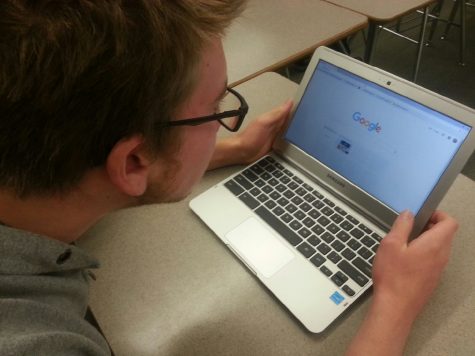Is This Real?
January 11, 2017
 How much of the news found on the internet comes from reliable sources? Do fake news stories tend to bring more success to companies than genuine reporting? How easily are people, in general, swayed by the information they are presented with? These are all questions that readers, and news editors alike, have been asking themselves for a long time.
How much of the news found on the internet comes from reliable sources? Do fake news stories tend to bring more success to companies than genuine reporting? How easily are people, in general, swayed by the information they are presented with? These are all questions that readers, and news editors alike, have been asking themselves for a long time.
If you are a person who tries to keep up with current events, it is safe to assume that you always want your news to be reliable and accurate. However, there are people on the internet who will intentionally fabricate stories, often making false claims about people, and will present them as the truth.
Many of these articles can be classified as a type of “clickbait,” a term used to describe attractive links that contain little useful substance, primarily used to increase view counts and profits. In most cases, the creation of these articles are only motivated by monetary gain. A writer will create a false story and publish it on their website, in the hopes that people will be intrigued by the title and continue reading. One could come to the conclusion that these writers share the mentality that exaggerated news is exciting news, that the truth needs to be bent in order to catch the reader’s eye.
Some people worry that the spread of this false information can greatly affect the way we see the world and can cause harm in real life. For example, after the recent “Pizzagate” conspiracy theory gained popularity and was regarded by some as factual, an armed man walked into Comet Ping Pong in Washington, D.C. because he had read online that the business, in conjunction with Hillary and Bill Clinton, was running a child trafficking ring. Of course, this story was proven to be false, but it convinced someone to create an extremely dangerous situation in the restaurant. Perhaps the worst part of this phenomenon is the fact that fake news can be seen and spread almost anywhere, with the worst offenders being Facebook, Yahoo, and similar websites that gain a great amount of traffic.
A few teachers decided to share their opinions on the matter, such as Mrs. McShane, Mr. Ames, and Mr. Sidmore. When asked about whether or not she uses Google to find news, Mrs. McShane said, “I use Google as a search engine. For news, I typically skim CNN, Fox, BBC and ABC, as well as Boston.com for local stories. I am always skeptical of stories that I hear from students and others in my personal life.” She then explained, “People are easily influenced by the news. They tend to believe what they hear and don’t care enough to educate themselves. Education is power, and people can be easily manipulated if they don’t educate themselves.” Mr. Ames shared similar opinions, and added that “The spread of false information can be very dangerous.”
All three of the teachers agreed that there is always a strong bias present in the media, as they have learned from checking the news at least once every day for many years. “I question all news,” Mr. Sidmore explained, “because no matter what agency it is presented by, it will always be biased.”
Along with adults, it is also important to consider the viewpoints held by members of the younger generations, as they are growing up in a world in which the internet is increasingly becoming the main source for current events. Meredith Lynn, a senior, expressed that, “This definitely catches my attention and worries me, because I use Facebook and Yahoo to find news articles.”
Due to the recent controversy surrounding these websites, they have taken measures to filter out fake news. Google has changed the title of the “In the News” section to “Top Stories,” and Facebook is implementing automatic systems to detect stories that are likely to be untrue and to then suppress them. However, these systems cannot be perfect, and people are still at great risk of being swayed by erroneous reports.
So, what can you do to avoid these stories? Unless you stick to the most reliable of media outlets, you will find it hard to do so. But make sure to be skeptical of what you read before sharing it. If something seems overly controversial, look into it more, and you may discover that it is false. While most people are unlikely to read further into it, you will be more informed than they are, and you will have the ability to keep it from spreading. Fake news cannot be stopped unless you reject it.
